‘Worst violence since apartheid’: everything you need to know about the South Africa riots
Jacob Zuma’s ‘private spy’ prime suspect in investigation into deadly civil unrest
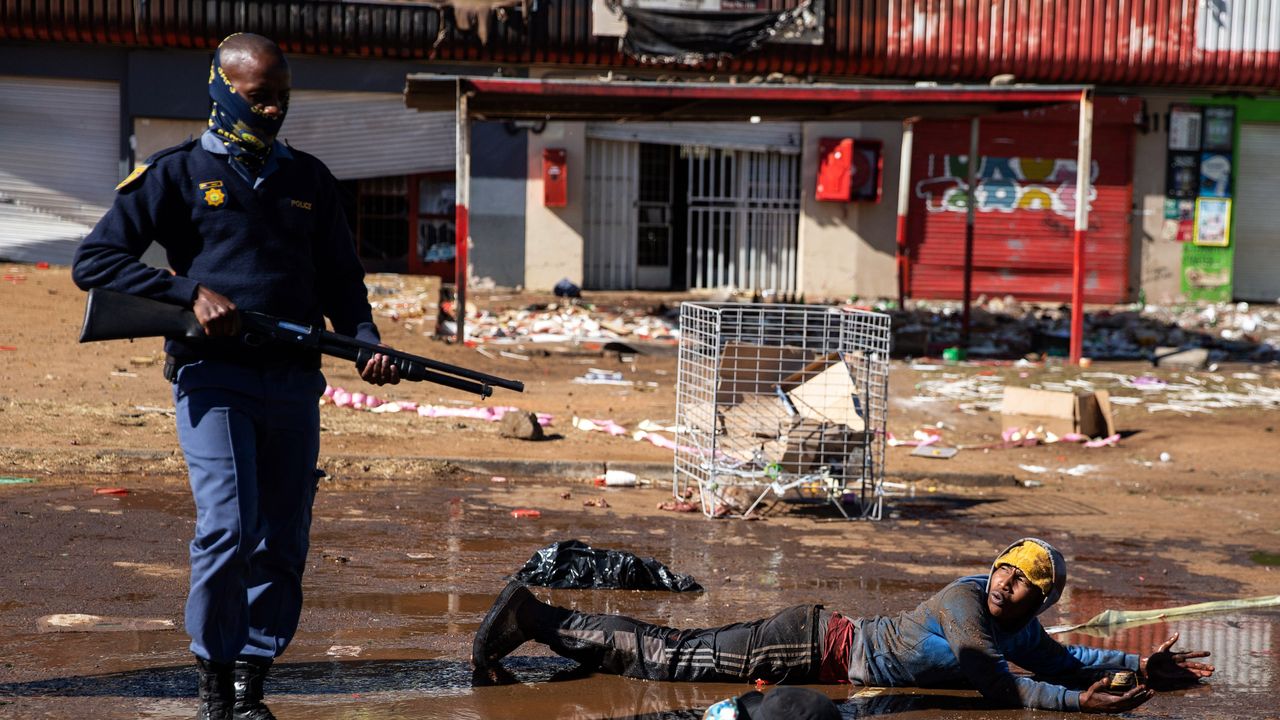
Scores of people have been killed and crucial infrastructure brought to a grinding halt as looting and violence spreads across South Africa.
The unrest broke out after former president Jacob Zuma handed himself in to begin a 15-month prison sentence for contempt of court last week and has accelerated in recent days, with protesters in cities nationwide burning shopping centres and clashing with police.
Zuma’s supporters “believe the former leader is the victim of a political witch-hunt”, Sky News reports. Government investigators have linked former loyalists, including the ex-head of the country’s State Security Agency, to the escalating chaos.
Subscribe to The Week
Escape your echo chamber. Get the facts behind the news, plus analysis from multiple perspectives.

Sign up for The Week's Free Newsletters
From our morning news briefing to a weekly Good News Newsletter, get the best of The Week delivered directly to your inbox.
From our morning news briefing to a weekly Good News Newsletter, get the best of The Week delivered directly to your inbox.
The former president is accused of “industrial-scale state corruption” and his trial was viewed as a “critical test of post-apartheid South Africa’s commitment to upholding the rule of law”, writes The Times’ diplomatic correspondent Catherine Philp.
“Yet his imprisonment has led to the country exploding into the worst violence and lawlessness for years,” she adds. Zuma’s successor, President Cyril Ramaphosa, has accused him of “deliberately stoking the anger of Zulu nationalists”.
Philp agrees that “Zuma’s role in the violence is clear”. The foundation that represents him has described the deadly unrest as the “reactive righteous anger of the people... which others have characterised as violence”.
Ramaphosa has repeatedly appealed for calm, telling South Africans in a televised address to the nation: “This is not us.” But the ongoing violence is “underlining Ramaphosa’s weakness and his predecessor’s ability to foment disorder even from a prison cell”, says Philp.
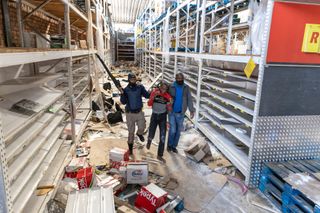
In many ways, South Africa is engaged in a “war for the rule of law”, says The Economist, with “the rioters and their sponsors” attempting “to destroy the rule of law”, while “Ramaphosa, and all patriotic South Africans, must uphold it”.
The violence consuming the nation “is not a spontaneous protest” but was “incited, and in some cases perhaps instigated, by people close to the former president”, the paper continues. Their “narrow aim is to have him released”, while their wider intention is to “make the country ungovernable so as to undermine his successor”.
Indeed, Zuma “represents the ugly side” of the governing African National Congress (ANC), and “his supporters either tolerate corruption, or avidly indulge in it”. Ramaphosa, meanwhile, was appointed “to clean up the mess his predecessor left behind”.
As the death toll climbed to at least 117 on Thursday, the president sent in 25,000 members of the armed forces to aid police, “in the largest deployment of soldiers since the end of white minority rule in 1994”, The Independent reports. A reserve force of 12,000 troops has also been called up, with trucks, armoured personnel carriers and helicopters used to transport soldiers to “trouble spots”, the paper adds.
Ramaphosa must stand firm in the face of the growing pressure to release Zuma from jail, says the Financial Times’ chief foreign affairs commentator Gideon Rachman, who argues that “survival of democracy depends on an independent judiciary”. The jailed ex-leader’s “nine years in office saw a rapid growth in corruption”, Rachman writes, but “with Zuma’s imprisonment, the rebuilding can begin in earnest”.
“Because South Africa is a young democracy - with deep social and economic divisions - there was no guarantee the judiciary would survive the assault from Zuma and his allies,” he continues. “That the former president is in prison is a tribute to the robustness of the country’s legal system.”
All the same, Ramaphosa “faces a delicate balance”,says The Times’ Philp, who warns that “any violent confrontation between soldiers and rioters risks being spun by Zuma as a politically motivated crackdown”. However, “failing to halt the disorder will only exacerbate the daily hardships that have seen so many caught up in riots and looting”, she adds, so the government “can ill afford to let the violence spread still further out of control”.
Even with the ex-president behind bars, “many within the ANC still see Zuma as their leader, and his faction as their best chance for enrichment” from systematic corruption, says The Economist.
But with a growing number of South Africans questioning whether “the state is up to the task” of facing down his allies, “calls to release Zuma to stop the violence must be rejected with the disdain such ransom notes deserve”, the paper concludes.
Sign up for Today's Best Articles in your inbox
A free daily email with the biggest news stories of the day – and the best features from TheWeek.com
-
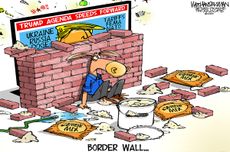 Today's political cartoons - February 22, 2025
Today's political cartoons - February 22, 2025Cartoons Saturday's cartoons - bricking it, I can buy myself flowers, and more
By The Week US Published
-
 5 exclusive cartoons about Trump and Putin negotiating peace
5 exclusive cartoons about Trump and Putin negotiating peaceCartoons Artists take on alternative timelines, missing participants, and more
By The Week US Published
-
 The AI arms race
The AI arms raceTalking Point The fixation on AI-powered economic growth risks drowning out concerns around the technology which have yet to be resolved
By The Week UK Published
-
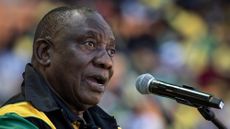 Why South Africa's land reform is so controversial
Why South Africa's land reform is so controversialThe Explainer Donald Trump has turned his ire on the South African government's land reform policies
By Richard Windsor, The Week UK Published
-
 Who is the Hat Man? 'Shadow people' and sleep paralysis
Who is the Hat Man? 'Shadow people' and sleep paralysisIn Depth 'Sleep demons' have plagued our dreams throughout the centuries, but the explanation could be medical
By The Week Staff Published
-
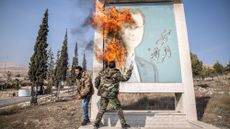 Why Assad fell so fast
Why Assad fell so fastThe Explainer The newly liberated Syria is in an incredibly precarious position, but it's too soon to succumb to defeatist gloom
By The Week UK Published
-
 Romania's election rerun
Romania's election rerunThe Explainer Shock result of presidential election has been annulled following allegations of Russian interference
By Sorcha Bradley, The Week UK Published
-
 Russia's shadow war in Europe
Russia's shadow war in EuropeTalking Point Steering clear of open conflict, Moscow is slowly ratcheting up the pressure on Nato rivals to see what it can get away with.
By The Week UK Published
-
 Cutting cables: the war being waged under the sea
Cutting cables: the war being waged under the seaIn the Spotlight Two undersea cables were cut in the Baltic sea, sparking concern for the global network
By The Week UK Published
-
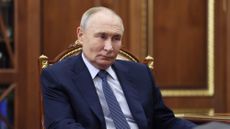 The nuclear threat: is Vladimir Putin bluffing?
The nuclear threat: is Vladimir Putin bluffing?Talking Point Kremlin's newest ballistic missile has some worried for Nato nations
By The Week UK Published
-
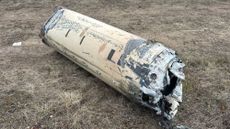 Russia vows retaliation for Ukrainian missile strikes
Russia vows retaliation for Ukrainian missile strikesSpeed Read Ukraine's forces have been using U.S.-supplied, long-range ATCMS missiles to hit Russia
By Arion McNicoll, The Week UK Published